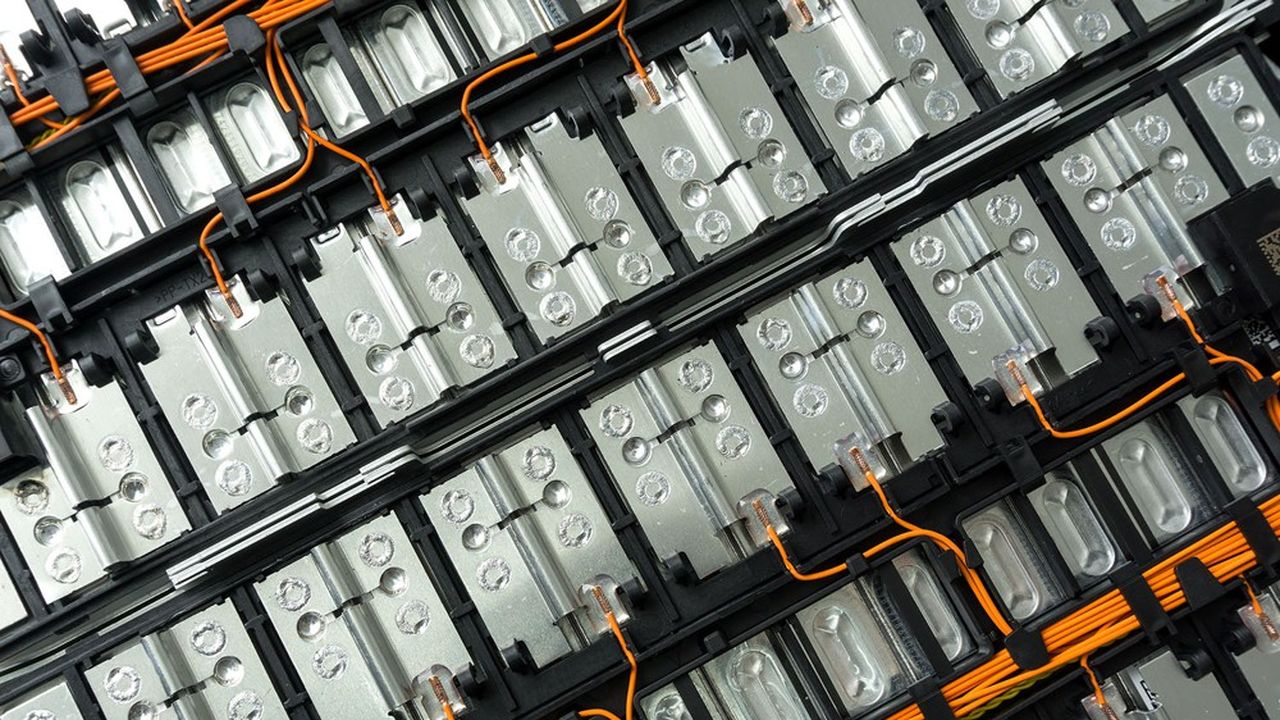Posted on Apr 8, 2021 at 7:23 amUpdated Apr 8, 2021, 9:18 AM
Traditional car batteries just have to beware! At least that’s what the research carried out by a team at Chalmers University of Technology in Sweden suggests. The latter exhibited a demonstrator of a “massless battery”, which is in the form of a carbon fiber material that serves as both a power source and a structural component for a vehicle. Its rigidity is 25 gigapascals (GPa) and its tensile strength is 300 MPa.
As for its energy density, it is 24 Wh / l, or 20% of current lithium-ion (Li-ion) batteries. Concretely, the demonstrator consists of a negative electrode (cathode) in carbon fiber and a positive electrode (anode) in aluminum foil covered with iron and lithium phosphate. Both are separated by a fiberglass cloth which contains the electrolyte.
The massless battery
Research continues. Within two years, the massless battery could reach an energy density of 75 Wh / l and a rigidity of 75 GPa. Which would make the battery as strong as aluminum, but with a much lower weight. Something to leave car manufacturers dreaming about.
With a market potential estimated at 400 GWh for 2030, Europe is mobilizing with a program called “Battery 2030”. Among the lines of research are solid batteries. This involves replacing the liquid electrolyte of conventional batteries with a solid conductor. The advantages are numerous: better thermal stability, more on-board energy density, reduced loading time and reduced environmental impact of manufacturing processes.
High performance Li-ion cells
The first batteries of this type could be released between 2025 and 2030. The race is therefore on. Among the competitors is the French ACC (Automotive Cells Company). This new market player is 50% owned by Saft, the subsidiary of Total, and 50% by the PSA-Opel tandem. At the end of 2023, the company will first start producing high-performance Li-ion cells (i.e. 650 Wh / l) before moving on to the manufacture of solid batteries. “We want to be among the first to industrialize them competitively, knowing that there are many technical challenges to overcome”, reports Jean-Baptiste Pernot, director of operations at VAC.
Concerning the solid electrolyte, several avenues are explored with, in particular, the use of polymers. In this perspective, ACC relies on certain partners. Starting with Saft, BASF, Umicore, Solvay and even CEA. For its part, ACC will have an 11,000 m2 research center in Bordeaux. Construction, in progress, will be completed in September.
Batteries sodium-ion
In 2030, electric cars will share the road with thermal and hydrogen vehicles. The latter, like the hybrid models with thermal engines, have specific needs not in energy density but in rapid recharging power. A particularity to which answer the sodium-ion batteries of the French Tiamat.“These are fully recharged in ten minutes”, argues Hervé Beuffe, the president of the company.
Created in 2017 on the basis of research carried out by the CNRS and the CEA, the company has just signed a first contract with the equipment supplier Plastic Omnium, which covers the manufacture of 300 light voltage sodium-ion battery packs (48 volts) which will serve as proofs of concept. If these tests are successful, the marketing and production of sodium-ion batteries could start in France over the next two or three years – knowing, moreover, that other contracts for demonstrators are in the process of being signed.
–

:quality(85)//cloudfront-us-east-1.images.arcpublishing.com/infobae/K7PZWNNDCVFXHKLWJKNEUBSLBY.png)